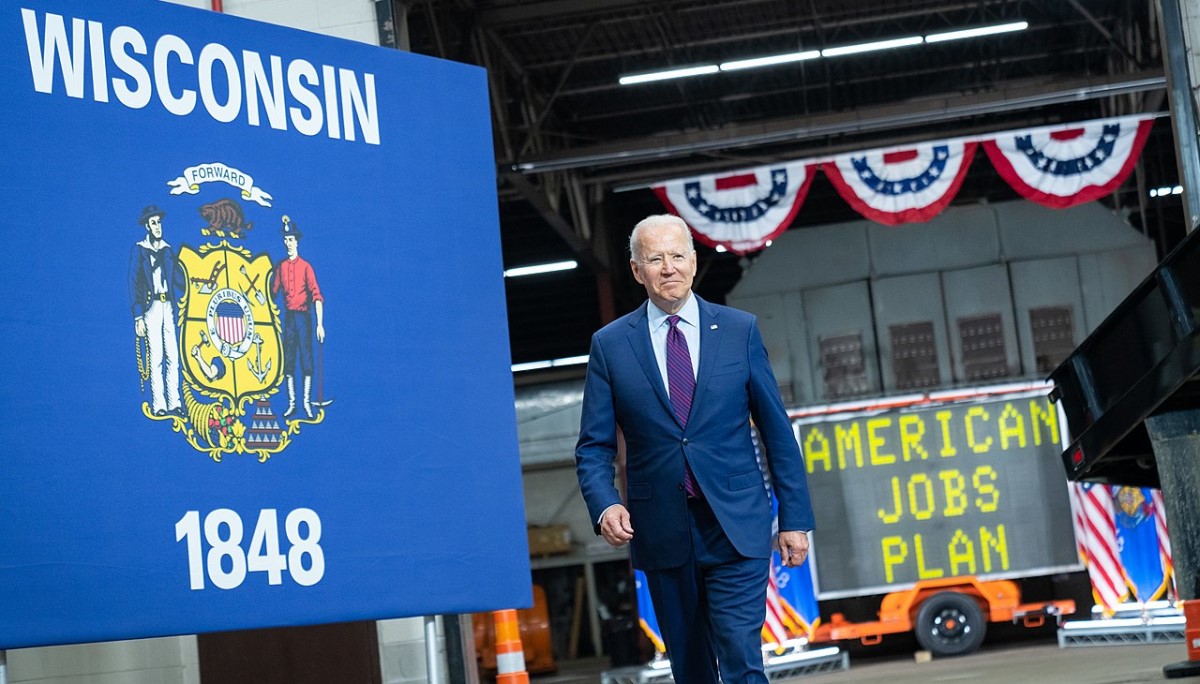We believe—and hope—that conservatives can rally in support of greater election integrity measures that can address legitimate concerns about how the 2020 election was conducted. But to do that, we must focus on arguments that withstand scrutiny.
Recently, Dr. William Doyle wrote a response to a Wall Street Journal editorial that cited our organization’s work investigating the 2020 election in Wisconsin. The author seems chiefly concerned about our analysis of private election funding from the Mark Zuckerberg-funded Center for Tech and Civic Life, and argues that it was “deeply flawed.”
He points to his own analysis of CTCL, and its claims, as the better study. Not only do we disagree with his analysis, we fear studies like this could damage efforts to improve election security.
The article characterized the WSJ and WILL’s position as “[t]here were some slight ‘problems’ with the election.” That’s not true. We thought private funding of election administration was biased, significant, objectionable, and should end moving forward.
Indeed, WILL supported legislation that would have required any private funds to be distributed based on population to all municipalities in the state. Unfortunately, that bill was vetoed by Gov. Tony Evers, even though an equal distribution of private funding for mail-in voting could still be expected to benefit Democrats.
We reached this conclusion because we found the distribution of CTCL funds was skewed toward heavily Democratic areas and materially increased turnout in these areas. The author seems to believe we assume all counties were equally affected by CTCL funds. This is not correct.
What we did do is examine all municipalities that received CTCL funds, not just those that received the most. That is what one should do in attempting to assess the statewide impact of this funding. That statistical analysis led us to conclude that skewed CTCL funding may have increased Biden’s turnout by 8,000 votes. Since the race in Wisconsin was decided by a bit more than 20,000 votes, that’s a very significant finding.
Doyle says he found a larger impact, but we think his methodology was fundamentally flawed. He compares the 2016 and 2020 election results only in counties that increased their votes for Biden. The problem is that, apart from a minor adjustment for population growth and the statewide turnout increase, his model considers only that factor.
Put differently, his study assumes its conclusion and attributes almost all increases in turnout for Biden to CTCL grants. Indeed, any counties that got substantial amounts of funding but showed a net gain for Trump were completely left out of his count of the effect. Ignoring data that runs counter to your hypothesis is a fundamental flaw in research. It may stoke partisan rage, but it will convince no one who is not already part of the choir.
This failure to consider other factors is fatal to conservative arguments like those we and other readers of The Federalist want to see made. Across the nation, voter turnout increased by more than 17 million over 2016, including in areas without a CTCL presence.
In Wisconsin, Trump received 200,000 more votes in 2020 than he did in his previous election, yet our study found that CTCL funding did not benefit Trump. This was a national election that generated a lot of attention, and CTCL grants in states like Wisconsin were one of many factors that may have contributed to increased voter turnout.
Indeed, our election report points to a number of other areas that warrant further discussion such as the excessive use of indefinitely confined status to obtain absentee ballots, the illegal use of ballot drop boxes (something we have challenged in court), and subjectivity in absentee ballot rejection rates. Yet, in Doyle’s analysis, there is no attempt to account for any of these factors.
There are other problems with the author’s study. For example, he uses county-level election returns to measure the effects of grants that almost exclusively occurred at the municipal level in Wisconsin. This winds up masking the fact that Biden only gained about 6,000 more votes in the city of Milwaukee than Hillary Clinton did in 2016, underperforming increased turnout in the rest of the state.
Even under our more thorough and careful approach, the CTCL funding made a big difference. Why exaggerate it? Nor should we go beyond what the evidence shows. Finding that CTCL raised Biden turnout by 8,000 (or even 65,000) doesn’t mean these new voters weren’t real people and eligible to vote.
Based on what we know, CTCL did not result in fraud such as made-up votes and ineligible voters. But it did put a fairly large thumb on the scale for Democrat turnout efforts. Unfortunately, such funding is probably legal. If someone would uncover illegal acts funded by CTCL, it’d be a different matter. So far, no one has.
CTCL’s closeness with supposedly neutral election officials was somewhere between unsavory and putrid. It injected a private and partisan actor into the administration of our elections. Even if that’s not illegal currently, it is definitely unfair and unseemly. To reiterate, we believe that dynamic should change moving forward.
WILL is committed to the conservative cause and our litigation and policy work speaks for itself. And we don’t think the movement is served well by studies like this even if they might provide “more” support for our position.
Serious work to improve election integrity requires a willingness to call “balls and strikes.” We have found that this leads to court victories and policy reforms. There is no inconsistency between commitment and rigor.
Rick Esenberg is the president and general counsel of the Wisconsin Institute for Law and Liberty. Will Flanders, PhD is the research director of the Wisconsin Institute for Law and Liberty.






